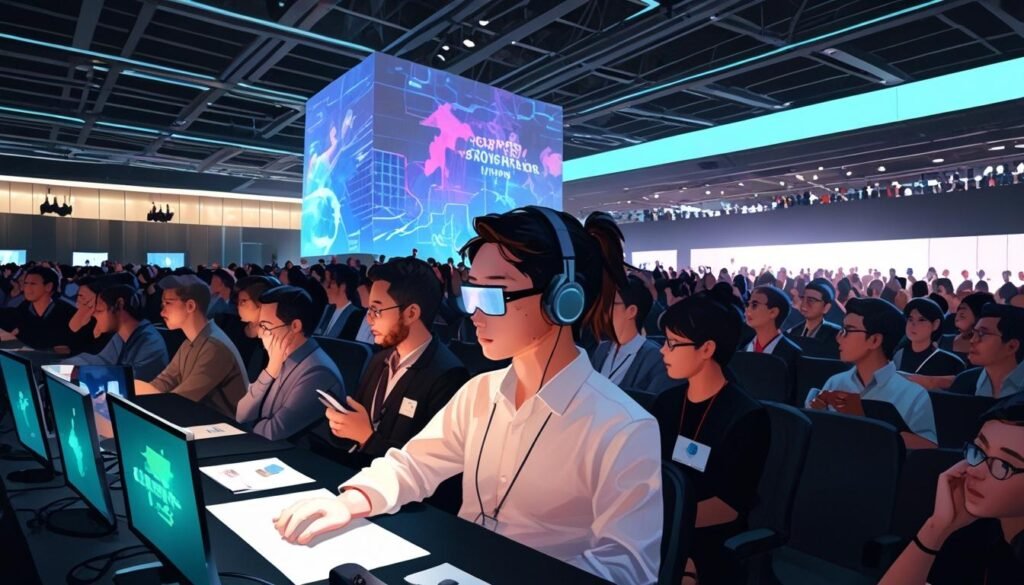**London**: The launch of DeepSeek’s R1 model is reshaping the European AI landscape, offering opportunities for startups amidst traditional challenges. Industry leaders discuss strategies that will define future competition and innovation in this evolving technological environment, navigating geopolitical and funding obstacles along the way.
The recent launch of DeepSeek’s R1 model has sent significant ripples through the tech landscape, compelling attention and sparking discussions about the future of artificial intelligence (AI) both globally and specifically within Europe. Announced last week, this unexpected innovation from China appears to have shifted the paradigm, challenging previous assumptions about the nation’s position in the AI race. As Marc Andreessen noted in relation to this development, it was reminiscent of a “Sputnik moment,” highlighting a sudden technological advancement that forces competitors to reconsider their strategies.
The tech market reacted sharply to DeepSeek’s release, witnessing dramatic fluctuations, particularly among chip manufacturers like Nvidia, which saw substantial drops in valuation. The stock exchanges experienced an initial downturn, with turmoil extending into cryptocurrency markets, before stabilising as investors reassessed the situation. While the announcement of new President Trump’s $500 billion Stargate initiative had seemed like a powerful counterbalance, the rapid advancements of DeepSeek’s AI capabilities rendered those initiatives less impactful in the short term.
Following this upheaval, a pivotal discourse has emerged around the implications for European AI startups. Many in the industry perceive DeepSeek’s R1 as an opportunity rather than a threat. Elena Poughlia, founder of Dataconomy, observed that this new model provides a “cheaper, more sustainable” solution that could enable European companies to innovate without requiring costly data centres or hardware. Her insights suggest that for firms not already entrenched in models like ChatGPT or Claude, the opening provided by DeepSeek may redefine the competitive landscape.
Reflections on the potential for European AI firms highlight a differentiation between previous technological surges and this current shift. Alex Ball, from Block Dojo in London, emphasised a change in focus, urging startups to centre their strategies around user relationships rather than merely competing in technical capability. This sentiment is reinforced by Carol Constant, founder of WhomLab, who mentioned the risks associated with geopolitical and regulatory frameworks, particularly in connection with DeepSeek’s reliance on technologies subject to stringent US export control.
There is recognition among industry experts that while European AI possesses substantial talent and innovative potential, a historical funding gap has hindered commercial success. Appu Shaji, CEO of Mobius Labs, pointed out that the emergence of open-source models is gradually evening the playing field, allowing European startups to enhance their innovation without the pre-requisite of extensive capital investment. With the rise of high-performing, low-cost models, organisations can refine and adapt cutting-edge technologies in ways previously unavailable, thus fostering a stimulating environment for creativity and speed.
The commentary extends to the strategic insights of industry leaders who suggest that the shift to more efficient algorithms, as evidenced by DeepSeek’s product, could redefine operational priorities within European AI. Anders Ibsen from Savery proposed that focusing on “First Principles Thinking” to develop algorithmic breakthroughs could yield more significant advancements than simply accumulating hardware. This underscores a potential avenue for European companies to leverage AI capabilities in ways that disrupt established industries.
Experts also forecast that DeepSeek will not be the only influential entity emerging from China. As the landscape evolves, many anticipate further innovations that could either bolster or challenge European initiatives. Daniel Hulme, co-founder of Conscium, pointed to the nascent field of agentic AI as a realm where European startups could excel, asserting that the path forward promises dynamic competition as players react to each other’s moves in an ever-fluid environment.
Comments from express concerns about the implications of adopting technology from entities associated with censorship and regulatory scrutiny. Nikita Kaeshko, founder of Overwatch AI, maintained that open-source solutions provide indispensable transparency and data governance—qualities especially appealing in conformity with EU privacy standards.
The growing power of AI, particularly open-source AI, appears to be shaping a new competitive landscape for European entities. As Xander Berkein of Donna articulated, access to advanced, cost-effective AI models may afford companies the flexibility to create tailored solutions that meet specific market needs.
Collectively, this dialogue around DeepSeek’s R1 reveals an inflection point for AI development, and the response from European firms will be instrumental in determining whether they seize this defining opportunity or falter under its challenge. Observers will watch closely to see how these dynamics unfold in a market increasingly defined by innovation, agility, and the ability to navigate regulatory environments.
Source: Noah Wire Services





